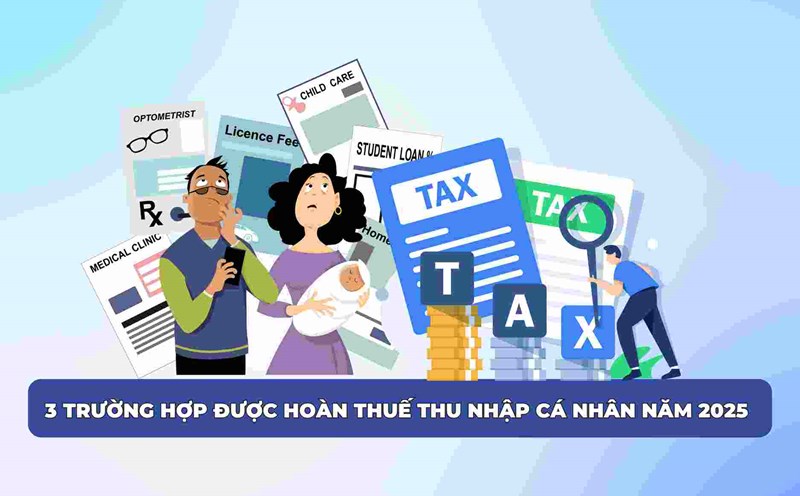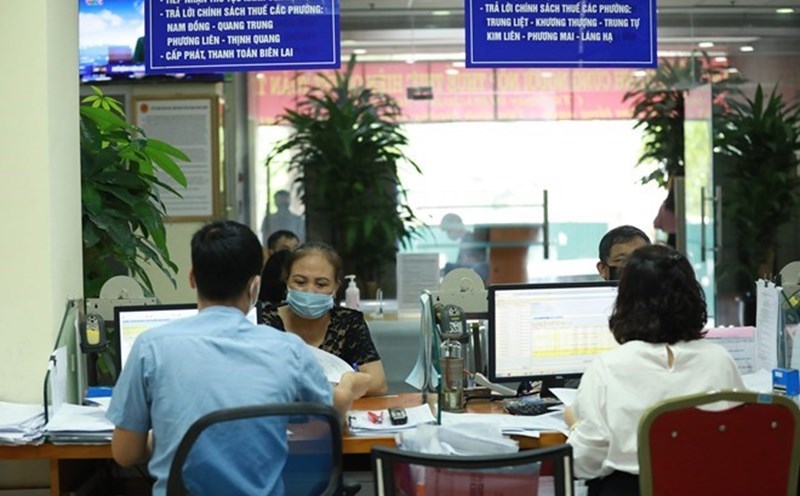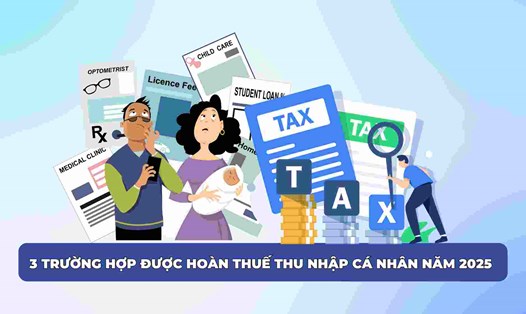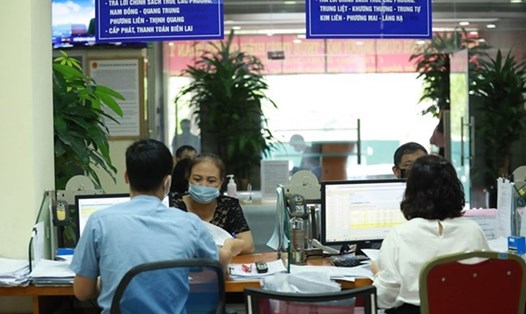Heartbreaking when Tet bonus "pulls" personal income tax up
Recently, Ms. Pham Thi Linh (Hanoi, 30 years old), working at a service - communication company, happily received the notice: Monthly salary of 30 million VND plus Tet bonus of 30 million VND, increased her gross income last month to 60 million VND. Thinking that she would have "plenty" to pay off her graduate tuition and plan to save up to buy gold, Ms. Linh was "shocked" when she saw that personal income tax (PIT) of more than 8.2 million VND was deducted immediately, not to mention 3.15 million VND in insurance from her basic salary.
“I know that the Tet bonus is usually included in my income and taxed according to the progressive tax schedule, but I never expected to lose more than 8 million VND in taxes at once. My salary and bonus increased a little, which looked impressive at first glance, but in the end I only received about 48.64 million VND,” Linh shared.
According to her, the remaining money is still enough to cover daily expenses, but the "sadness of the beginning of the year" is that the cost of living in Hanoi is increasingly expensive, leaving her with little left.
"Personal income tax calculated based on the income of salary and bonus in one month is pushed up to a higher level. Perhaps the tax policy should be more flexible, so that employees are less 'shocked' when receiving bonuses," said Ms. Linh.
When personal income tax policy has not kept up with the "price storm"
In big cities, the prices of rent, gasoline, food, etc. are all increasing. Many economic experts say that the family deduction of 11 million/month (applied from 2020) is lagging behind the rate of increase in the cost of living. Workers like Ms. Linh hope that if essential expenses continue to increase, the deduction threshold or tax schedule will also need to be updated to be more flexible and fair.
"I don't avoid taxes. But working extra days off, increasing my nominal salary... in the end, I still feel 'eroded' by the high cost of living and the little-changed tax schedule," Linh said.
In addition to rent and master's tuition, Linh also has to pay hospital fees for her recent bout with influenza A and dengue fever. "If this medical expense were tax deductible, I would feel less pressured. But the current law does not allow it," she said.
Talking about the "tax shock" of workers like Ms. Linh, many experts say it is time to review the deduction policies before calculating personal income tax for some essential expenses.
According to the recent proposal of the Ministry of Finance, economic experts affirm that reasonable and legal expenses such as medical examination and treatment, vocational training or home loan interest should be considered as deductibles before calculating taxes.
Talking to Lao Dong Newspaper, tax expert Dr. Nguyen Ngoc Tu, lecturer at Hanoi University of Business and Technology, also shared the same opinion: The new Personal Income Tax Law should allow deductions before calculating tax for expenses related to healthcare, education and housing, based on valid documents provided by taxpayers.
“For example, taxpayers who send their children to study abroad should be deducted if they have sufficient documents. Medical examination and treatment expenses for themselves and their family members, after deducting insurance costs, should also be deducted. Similarly, we should also consider allowing the interest on a home loan to be deducted from income before taxing,” Mr. Tu emphasized.
Practical application - sharing the burden with workers
The principle of personal income tax is: “Income - expenses = taxable income”. Experts say that, in reality, workers often have to spend most of their income to pay for basic needs (food, clothing, housing, education, medical treatment). Taxing them heavily when they also have to deal with mortgage interest, high tuition fees or expensive medical treatment fees… does not seem to reflect the true nature of “real” income.
Dr. Nguyen Ngoc Tu suggested: it is possible to implement policies in the direction of the State and the people working together. For example, with interest on installment home loans, it is possible to stipulate a maximum deduction level or a support rate (such as 50% of the monthly installment interest). Similarly, the health and education sectors are also being studied to apply appropriate deduction levels.
Expected changes in personal income tax policy
The story of Ms. Pham Thi Linh is just a typical example showing the burden of personal income tax on urban workers, where the standard of living is high and spending needs are high. Pursuing a new tax policy, taking into account the deduction of essential expenses, not only helps reduce pressure but also encourages people to improve their qualifications (spending on education) and ensure social security (spending on medical treatment, buying a house).
In the context of rapid socio-economic changes, the living standards in urban areas are increasing, it is hoped that the new generation of Personal Income Tax Law will be promptly adjusted to create motivation instead of hindering the legitimate efforts of workers.











